Vladimir Vengerov
Nascimento : 1920-01-11, Saratov, Saratov Governorate, RSFSR
Morte : 1997-11-15

Writer
Boris Pavlovich Raisky, a bored Petersburg aesthet, comes to his family estate in a small town on the Volga. He hoped to find boredom and the faint-hearted provincials there, and did not expect that in the outback he was waiting for real life, dramatic love and serious passions. Boris Raisky’s estate is a blessed corner where everything pleases the eye: a native old house, tender greenery of birches and lindens, a silver strip of the Volga in the distance. And only a mysterious precipice at the end of the garden frightens the inhabitants of the estate. According to legend, at the bottom of it in ancient times, a jealous husband killed his wife and rival. “Precipice” is a symbolic word in the fate of the main character Vera. It fell to her to fall in love with a nihilist and a cynic who preaches "love for a term", painfully choose between feeling and duty, finally, go down to her beloved person in a cliff, cut off everything that connected with her former life...

Director
Boris Pavlovich Raisky, a bored Petersburg aesthet, comes to his family estate in a small town on the Volga. He hoped to find boredom and the faint-hearted provincials there, and did not expect that in the outback he was waiting for real life, dramatic love and serious passions. Boris Raisky’s estate is a blessed corner where everything pleases the eye: a native old house, tender greenery of birches and lindens, a silver strip of the Volga in the distance. And only a mysterious precipice at the end of the garden frightens the inhabitants of the estate. According to legend, at the bottom of it in ancient times, a jealous husband killed his wife and rival. “Precipice” is a symbolic word in the fate of the main character Vera. It fell to her to fall in love with a nihilist and a cynic who preaches "love for a term", painfully choose between feeling and duty, finally, go down to her beloved person in a cliff, cut off everything that connected with her former life...

Director
The front-line friends during the heavy battle swore to each other that the one who would survive would continue the work of the deceased. Mikhail Nesterov remained alive and the main business of his life was the search for a deposit of valuable clay. These searches began his friend before the war, in remote taiga places. Yevdokiya Perevalova — the widow of a deceased friend decides to help Nesterov get to those deaf places...

Director
In the Siberian taiga village of Wolf's Burrows, the Strogov family lives — Matvey with his wife Anna and his parents. Through the fate of this peasant family, a picture of the life of the Siberian region during major historical events — the Russo-Japanese War, the 1905 Revolution, the October Revolution of 1917 and the Civil War is outlined.

Writer
In the Siberian taiga village of Wolf's Burrows, the Strogov family lives — Matvey with his wife Anna and his parents. Through the fate of this peasant family, a picture of the life of the Siberian region during major historical events — the Russo-Japanese War, the 1905 Revolution, the October Revolution of 1917 and the Civil War is outlined.

Director
The driver Karpukhin came under investigation because of a tragic accident, as a result of which a person died. The young investigator, believing Karpukhin, undertook to defend the defendant, but at some point yielded to someone else's opinion, after which the accused had to prove his innocence himself...
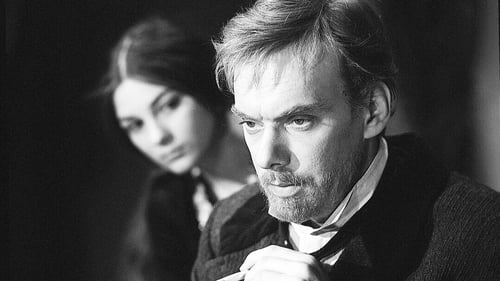
Writer
Based on the play of the same name by Leo Tolstoy. According to Fyodor Protasov, the surrounding life is riddled with dirt and falsehood. He does not want to participate "in all this dirty trick", he does not have the courage to fight it, and he chooses the third way — to stage suicide.

Director
Based on the play of the same name by Leo Tolstoy. According to Fyodor Protasov, the surrounding life is riddled with dirt and falsehood. He does not want to participate "in all this dirty trick", he does not have the courage to fight it, and he chooses the third way — to stage suicide.

Director
Leonid Pleshcheyev returned from the war blind. Against his will, he became a dependent. He drowns his grief in unrestrained drunkenness, thereby tormenting his wife Mariya and his teenage son Lyonka. Mariya finally decides to take her son and leave for Altai, but the boy runs away and returns to his father. So, together, they eke out a half-miserable existence until Grigoriy Shalagin, Pleshcheyev's longtime friend, returns from the army. It is he who awakens in Leonid the extinct self-esteem and pride of a soldier. Pity aside, he helps him get back to work.
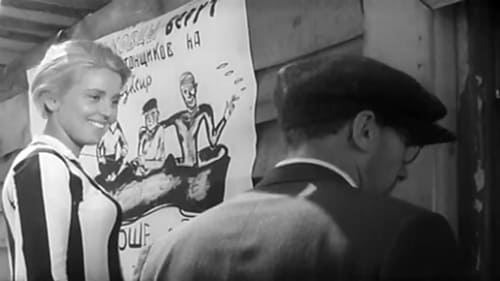
correspondent
The film is set in the 1930s in the USSR. The film tells about one day of the construction of the Magnitogorsk Iron and Steel Works. The heroes of the film are simple construction workers who are burning at work. Upon learning that their colleagues in Kharkov have set a record, they mobilize to break it. The entire construction site was engulfed in immense socialist competition. The teams are ready to complete the work on time at any cost. A Moscow journalist who has come to cover the scale of the great construction project is looking for the hero of his report...
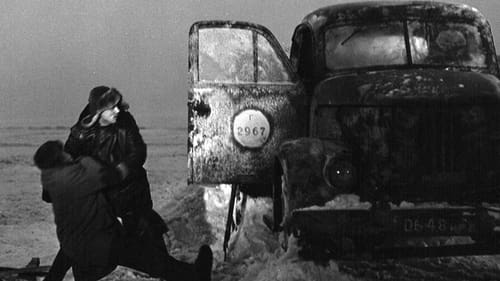
Director
Based on the story of the same name by Sergei Antonov. The young journalist of the central newspaper Sirotkin came to the Siberian timber industry to write an essay about the glorious driver Khromov. But soon Sirotkin’s inquiring mind calculated the trick of Khromov, who, noting one kilometer in the vouchers, traveled a short route he knew only, draining the remaining gasoline from the curbside. Having revealed yet another fraud, in which the director was also involved, Sirotkin realized that he would not write an essay, but that he would be lucky with materials for the trial. This was announced by the authorities of the timber industry. Khromov himself took the journalist on the return trip...

Director
Based on the novel of the same name by Nikolai Chukovsky.
The end of August 1941. At night, a truck rushes along the last road not yet occupied by the enemy to Leningrad. In the back of two — civil aviation pilot Lunin and commissar of the air division Uvarov. Lunin, a man no longer young, experienced, but had not yet been in battle, was sent to the legendary squadron of fighter pilots under the command of Captain Rassokhin. This squadron fought from the first day of the war and has already lost most of its composition. The story of the harsh everyday life of the defenders of Leningrad, full of heroism and tragedy; about the heavy share of city residents who fell into the ring of an enemy blockade. In the center of the story is the fate of military pilots who had to fight in the sky over Leningrad and the Baltic.
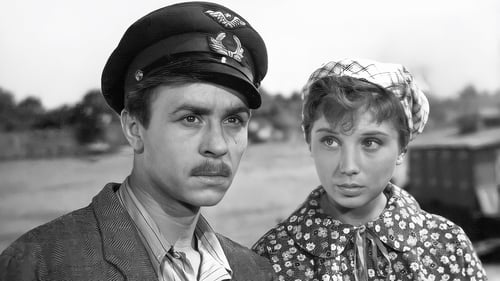
Writer
Based on the novel by Viktor Nekrasov “In the Hometown”.
Former front-line intelligence officer, captain Nikolai Mityasov, after being wounded, returns to the destroyed city and learns the sad news: his wife Shura cheated on him. Bitterness and confusion gave way to hope. But peace has come, demobilization has begun, it is necessary to restore the homeland. Nikolai finds the strength to continue living, enters a construction institute, meets Valya and begins a new happy life without war...

Director
Based on the novel by Viktor Nekrasov “In the Hometown”.
Former front-line intelligence officer, captain Nikolai Mityasov, after being wounded, returns to the destroyed city and learns the sad news: his wife Shura cheated on him. Bitterness and confusion gave way to hope. But peace has come, demobilization has begun, it is necessary to restore the homeland. Nikolai finds the strength to continue living, enters a construction institute, meets Valya and begins a new happy life without war...

Director
Based on the novel of the same name by Veniamin Kaverin.
From childhood, Sanya Grigoryev was able to achieve success in any business. He grew up a courageous and brave man. The dream of finding the remnants of Captain Tatarinov’s expedition led him to the ranks of polar explorers. The life of Captain Grigoryev is full of heroic events: he flew over the Arctic, fought against the Nazis. He was in danger, had to endure temporary defeats, but the hero’s persistent and purposeful character helps him to keep his vow made to himself in childhood: “Fight and seek, find and not give up.”
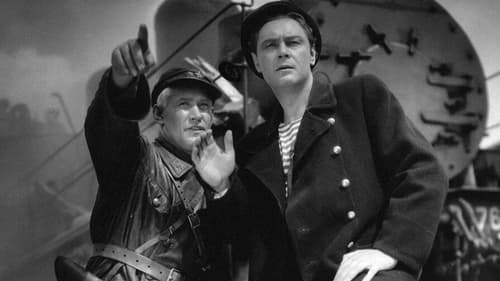
Director
The teenager Misha Polyakov, being with his mother in a Ukrainian village on vacation with his grandmother and about to return home to Petrograd, offers his best friend Genka to go with him. Suddenly, a white gang of Nikitsky bursts into the village and attacks Misha’s house, where Commissioner Polevoy lives. The purpose of Nikitskiy (aka Nikolskiy) is a dagger located at Polevoy. Saving the commissioner, Misha learns from him the history and secret of the weapon, and receives it for storage with a request to solve the secret. Having returned with adventures to Petrograd, Misha Polyakov with friends begins to unravel the riddle of the dagger, in the handle of which is encrypted text.

Director
Based on the play of the same name by Aleksandr Ostrovsky.
Two poor actors, Neschastlivtsev and Schastlivtsev, — no money, no work, no tobacco and that, having put on fake orders, armed with a pistol and a guitar, decide to visit the rich Neschastlivtsev's aunt — the landowner Gurmyzhskaya...

Director
Based on the play of the same name by Leo Tolstoy.
The Russian nobleman Fyodor Vasilievich Protasov cannot put up with the hypocrisy of his environment, but is powerless to fight it. He begins to drink, leaves the house and gradually falls. The behavior of Protasov helps to bring his wife Liza closer to a longtime friend of the family, Viktor Karenin. Unable to endure the lies and humiliation associated with the upcoming divorce proceedings, Fedya pretends to commit suicide and seemed to forever leave his family. It is only due to the accident that it becomes known that Fedor Protasov is alive. Liza, reconciled with the death of her husband and became the wife of Karenin, is summoned to court on charges of duality. To stop the stupid and deceitful comedy of the court and rid the shame of innocent people, Protasov shoots himself.

















